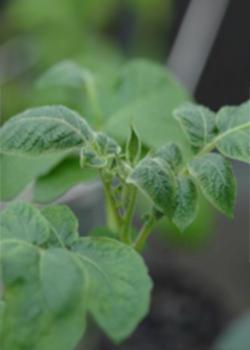Potato
Potatoes are one of the most important food crops in the world. As a temperate crop, they thrive under subtropical conditions
Compared to other vegetables, potatoes have become one of the most popular and widely cultivated crops. Additionally, they are an economical food source, providing affordable energy for the human diet. Potatoes are rich in starch, vitamins — particularly vitamin C and B1 — and essential minerals.
They contain approximately 20.6% carbohydrates, 2.1% protein, 0.3% fat, 1.1% crude fiber, and 0.9% ash. Potatoes also provide a significant amount of essential amino acids, including leucine, tryptophan, and isoleucine.


The Role of Elements
Potassium (K)
- Potassium enhances the transfer of sugars from leaves to tubers and plays a key physiological role in regulating photosynthesis.
- Plays an important role in the photosynthesis process, promoting vegetative growth.
- Improves the plant's efficiency in absorbing water and nutrients.
- Boosts resistance of potato plants to insect and fungal diseases, especially leaf blighters..
- Increases the weight and size of tubers while enhancing their quality.
- Strengthens plant resistance to environmental stress factors, including high temperatures, frost, drought, and salinity.
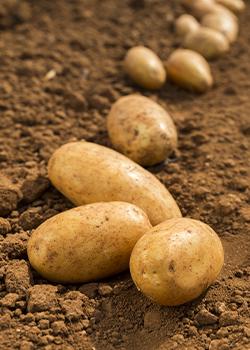
Phosphorus (P)
- Increases the number, size, and yield of tubers.
- Stimulates root growth and distribution, enhancing the percentage of tuberization.
- Supports the synthesis of nucleic acids and proteins.
- A major source of energy in the plant.
- Has an important role in the formation of carbohydrates.
- Increases plant resistance to frost and drought.
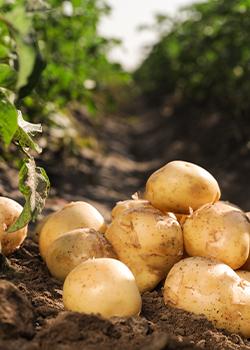
Calcium (Ca)
- Enhances vegetative and root growth.
- Boosts resistance of potato plants to fungal diseases such as blights.
- Increases yield, weight, and tuber size.
- Improves the hardness and overall quality of tubers.
- Enhances the storage capacity of tubers.
- Strengthens tuber resistance to physiological disorders.
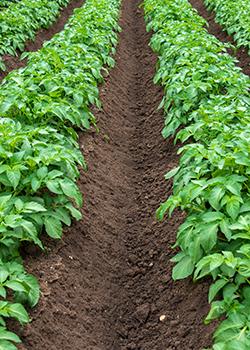
Deficiency Symptoms
Potassium (K)
- Reduced yield and smaller tuber size.
- Decreased resistance to unfavorable environmental conditions.
- Increased susceptibility to fungal and insect diseases.
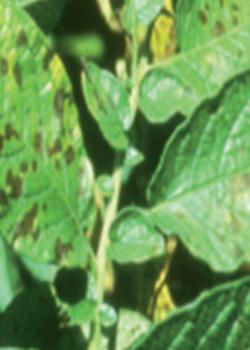
Phosphorus (P)
- Reduction in the number and size of tubers, resulting in crop shortages.
- Restricts vegetative growth of plants.
- Delays tuber maturation.
- Causes general plant weakness and reduces root distribution.
- Increases plant susceptibility to fungal diseases.
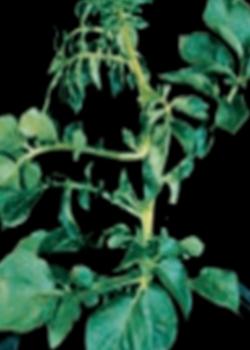
Calcium (Ca)
- Hollow heart appearance in potato tubers, along with failure in tuber sprouting.
- Poor vegetative and root growth.
- Drying of shoot tips and small branches.
- Appearance of dead spots on potato tubers.
